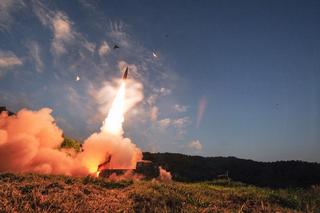The headline
President Trump is noticeably sensitive to the risks attached to nuclear weapons proliferation. Since returning to office, he has referred to nuclear weapons as “our greatest existential threat” and suggested that their use would bring about “the end of the world.” Trump has, accordingly, asserted a tough position on nuclear non-proliferation, referring to the spread of nuclear weapons as “very dangerous” and “an immediate problem.” Yet, despite tough rhetoric, since returning to office, President Trump has not demonstrated a consistent level of urgency in addressing emerging non-proliferation challenges.
Trump speaks fatalistically about China’s nuclear modernisation, asserting plainly that “Russia and us have by far the most, but China will catch us within five years.” Trump has also spoken of the desirability of nuclear arms control agreements China (as well as Russia), primarily on the basis of reducing the financial burden of maintaining the US nuclear arsenal.
Trump has yet to establish a clear position on North Korean nuclear proliferation. In a joint statement with Japanese Prime Minister Shigeru Ishiba in February 2025, Trump “reaffirmed [his] resolute commitment to the complete denuclearization of the DPRK.” However, in unprepared remarks, Trump has appeared to be less concerned, playing down tensions with the North Koreans and boasting of his “great relationship” with leader Kim Jong Un.
President Trump has demonstrated much more motivation in responding to nuclear proliferation in Iran, labelling Iran’s nuclear program “an existential danger to the United States,” repeatedly declaring that Tehran “cannot have a nuclear weapon,” committing to military action to prevent Iranian nuclear weapons acquisition, and promising a resolution to the Iran nuclear issue “very, very soon.”
The Trump administration has reiterated commitments on extended deterrence with NATO and US allies in Asia but has yet to substantively address proliferation issues related to US-aligned states, including South Korea, Saudi Arabia, Germany, and Japan. When pressed on Trump’s views on this issue, an NSC spokesman gave an anodyne line citing Trump’s commitment “to a policy that promotes nuclear non-proliferation around the world.”
What is happening behind the headlines?
The Trump administration has vigorously pursued non-proliferation in Iran, including issuing a raft of new sanctions against Iranian entities, issuing leader Ayatollah Ali Khamenei with an ultimatum for reaching a nuclear agreement, and entering into direct negotiations with Iran on a nuclear deal. In contrast, there has been no direct action by the second Trump administration targeting nuclear proliferation in North Korea.
As President Trump has tacitly acknowledged, prospects for nuclear arms control between the United States and China appear unlikely in the near term given geostrategic uncertainty and the absence of formal US-China arms control mechanisms since 2024.
The administration’s transactional approach to alliances and the associated decline in the credibility of US extended deterrence has given impetus to nascent national discussions on nuclear weapons acquisition in US-aligned states, including Germany, Poland, and South Korea. While such discussions are largely hypothetical, hedged, and driven more by a desire to signal to Washington than an honest appraisal of national policy options, they may ultimately prove a precursor to more serious consideration of the nuclear option should US security guarantees further deteriorate.
Key debates around the issues
In response to Iran’s development of its uranium enrichment capability, nuclear non-proliferation – compelling Tehran to roll back its nuclear weapons capabilities – remains the prevailing policy objective in Washington. In pursuing this objective, Trump has declared a preference for “making a deal” with Iran, exchanging sanctions relief for denuclearisation. He has, however, also confirmed a willingness to use force if dealmaking fails.
President Trump’s preference for dealmaking is shared by several of his key Middle East appointments. There are, however, interlocutors outside of the administration that favour immediate military intervention and are likely to pressure Trump to abandon negotiations in favour of the military option.
Unlike Iran, nuclear non-proliferation no longer appears to be the foremost US objective in North Korea. Instead, US discussions on North Korea’s nuclear program frame the challenge as one of deterrence, i.e. containing North Korean provocations and the threat of nuclear war. There is a similar level of acquiescence observable in the US position on nuclear proliferation in China. Discussions in Washington appear reconciled to China’s eventual emergence as a ‘nuclear peer’ and are focused not on rolling back China’s nuclear weapons capabilities, for example through arms control agreements or coercive statecraft, but rather with maintaining deterrence through nuclear modernisation.
The dominant US debate on nuclear proliferation in aligned states is not whether the United States should or should not tolerate aligned states acquiring the bomb. Rather, it is focused on what the United States is willing to do to prevent this happening. This reflects a wider ongoing debate regarding the US role in the world, anchored by internationalist versus isolationist camps. Internationalists argue for bolstering extended deterrence to aligned states, with nuclear non-proliferation cited as one (of many) strategic dividends. On the other hand, isolationists argue that the United States is overstretched and that allies should assume more responsibility for their own defence, even if this increases the likelihood of them resorting to independent nuclear weapons.
The implications
Despite considerable uncertainty, nuclear non-proliferation may ultimately prove durable. The United States may redouble arms control/non-proliferation efforts with China and North Korea. It may bolster extended deterrence guarantees to nuclear-capable allies, leading them to firmly renounce the nuclear option. And it may succeed, one way or another, in its efforts to forestall Iranian nuclear weapons acquisition, thereby reducing pressure on other regional states, such as Saudi Arabia and Turkey, to consider pursuing nuclear weapons themselves.
Naturally, the reverse outcome is also possible. China and North Korea may acquire powerful nuclear deterrents capable of crowding out US influence in the Indo-Pacific. US allies may judge that a latent, if not overt nuclear weapons capability may be the only way to assure deterrence in the face of declining US guarantees. And Iran may become the world’s tenth nuclear-armed state, eroding non-proliferation norms and leading nuclear dominoes to fall in the Middle East.

The scenario of more states thinking about the bomb, developing the ability to make the bomb, and even acquiring the bomb, all carry strategic implications for Australia. This would exacerbate ongoing disputes around Taiwan, the Korean peninsula, and the outer Japanese islands, sharpening Australian trade-offs between stable relations with China and strategic alignment with the United States. It would risk politicising Australia’s non-proliferation policy, as Canberra is forced to weigh sanctions against strategically aligned states such as Japan and South Korea. And it would recast the United States’ network of security relationships as Washington contends with new threats of regional nuclear escalation, strained relationships with proliferating allies, and a new generation of nuclear-armed states that are increasingly willing and able to shape international outcomes in their own self interest. Australia will need to establish new ways of working with the United States and its other regional security partners against enduring threats in this new status quo.
What to watch moving ahead
- The outcomes of US negotiations with Iran, especially in light of the reported 60-day window for reaching a nuclear agreement issued by Trump in early March.
- The Trump administration’s formal response to the Final Report of the Congressional Commission on the Strategic Posture of the United States, which made many recommendations related to nuclear modernisation, non-proliferation policy, and extended deterrence favouring an internationally oriented US nuclear posture.
What should allies like Australia do about it?
Australia should consider if and how reinforcing US extended deterrence through Australia-United States bilateral dialogue, capability development, and strategic posture would advance Canberra’s formal non-proliferation objectives given the proliferation challenges associated with the declining credibility of US extended deterrence. Australia needs to establish contingency plans for nuclear breakouts, including among aligned states for which traditional non-proliferation policies may prove vulnerable to competing strategic interests. Australia needs to consider if and how it intends to use its asymmetric advantages in shaping international non-proliferation outcomes — uranium exports, participation in multilateral export control regimes, etc. — as global proliferation challenges mount.
Unpacking Trump 2.0





.jpg?rect=0,75,3600,2250&w=320&h=200&fit=min&auto=format)



